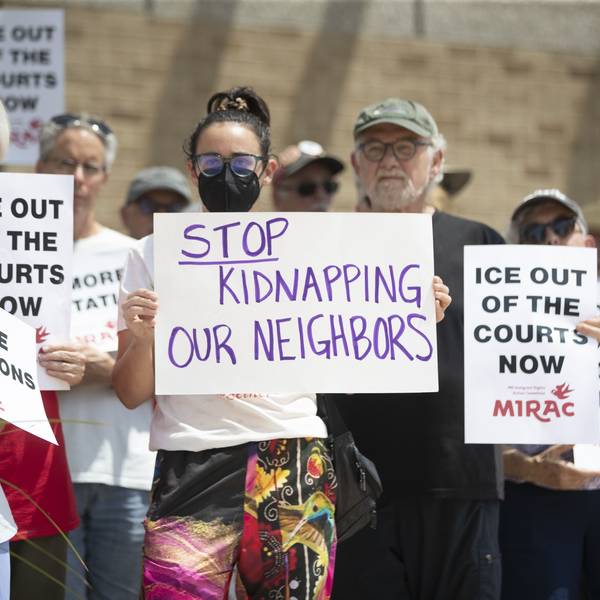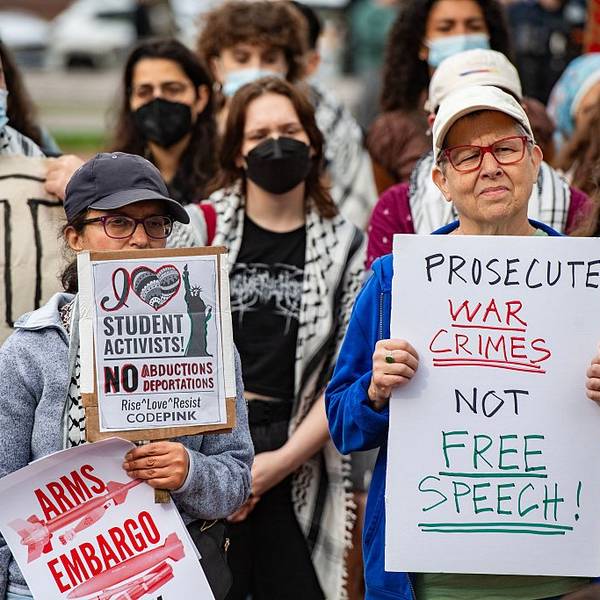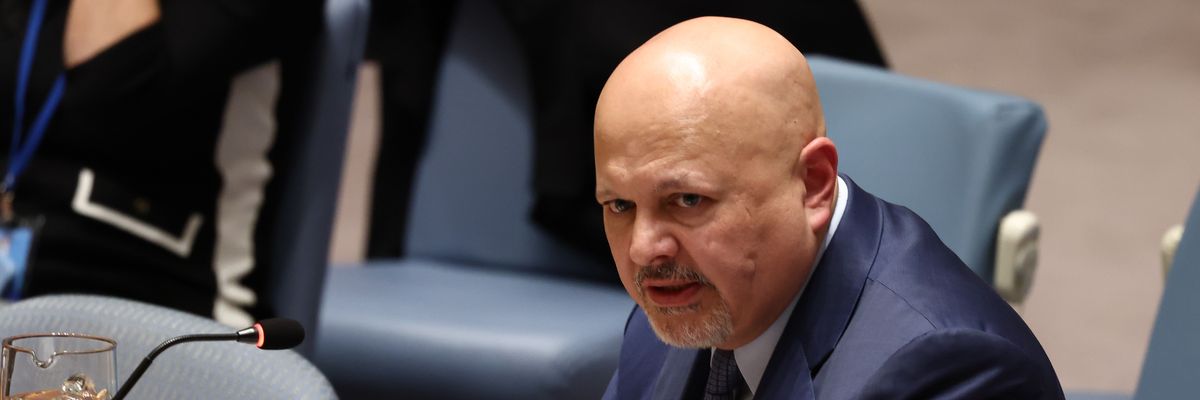In a federal court in Maine on Friday, two human rights advocates argued that U.S. President Donald Trump's economic and travel sanctions against International Criminal Court Prosecutor Karim Khan violates their First Amendment rights, because of Trump's stipulation that U.S. citizens cannot provide Khan with any services or material support as long as the sanctions are in place.
The lawsuit was filed by the ACLU on behalf of Matthew Smith, co-founder of the human rights group Fortify Rights, and international lawyer Akila Radhakrishnan.
Trump targeted Khan with the sanctions over his issuing of an arrest warrant for Israeli Prime Minister Benjamin Netanyahu and former Israeli Defense Minister Yoav Gallant, whom he accused of war crimes and crimes against humanity in Gaza.
The plaintiffs argued that stopping U.S. citizens from working with Khan will bring their work investigating other atrocities to a halt.
Smith has provided the ICC with evidence of the forced deportation and genocide of the Rohingya people in Myanmar, but he said he has been "forced to stop helping the ICC investigate horrific crimes committed against the people of Myanmar, including mass murder, torture, and human trafficking."
"This executive order doesn't just disrupt our work—it actively undermines international justice efforts and obstructs the path to accountability for communities facing unthinkable horrors," Smith said in a statement.
"The Trump administration's sanctions may discourage countries, as well as individuals and corporations, from assisting the court, making it harder to bring alleged perpetrators from Israel and other countries to trial."
Charlie Hogle, staff attorney with the ACLU's National Security Project, said it was "unconstitutional" to block the plaintiffs and other humanitarian groups in the U.S. from "doing their human rights work" with the ICC.
Radhakrishnan, who focuses on gender-based violence in Afghanistan, said she was "bringing this suit to prevent my own government from punishing me for trying to hold the Taliban accountable for its systematic violence against women and girls from Afghanistan."
In March, Amnesty International warned that Trump's sanctions would "hinder justice for all victims for whom the [ICC] is a last resort," particularly those in Gaza and the occupied Palestinian territories.
The court "relies on its member states to cooperate in its investigations and prosecutions, including by arresting individuals subject to ICC arrest warrants," said Amnesty. "The Trump administration's sanctions may discourage countries, as well as individuals and corporations, from assisting the court, making it harder to bring alleged perpetrators from Israel and other countries to trial."
"Ultimately, the sanctions will harm all of the ICC's investigations, not just those opposed by the U.S. government," said the group. "They will negatively impact the interests of all victims who look to the court for justice in all the countries where it is conducting investigations, including those investigations the U.S. ostensibly supports—for example in Ukraine, Uganda, or Darfur."




